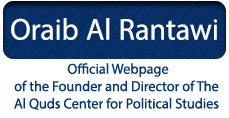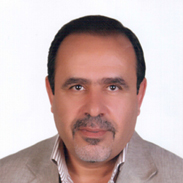Media in Arab countries lack transparency, diversity and independence
Lectures & Conferences
- Date : 2012-06-25
Source: Konrad-Adenauer-Stiftung

The Konrad Adenauer Stiftung hosted a conference about the “Media in Arab countries lack transparency, diversity and independence” at the Deutsche Welle Global Media Forum 2012 in Bonn. Experts from Egypt, Morocco, Jordan and Syria was invited to discuss the media’s role in shaping a political culture in the Middle East and North Africa
Regarding this topic, Mr. Oraib Al Rantawi, the director of Al Quds Center for Political Studies, drew attention to the “big picture”, explaining who controls the media in the Arab region. “We have to talk about pan-Arab media because the influence of some Arab media outlets in the domestic scene in many Arab countries is stronger than the influence of the state-owned media”, he pointed out. The first major revolution in the Arab media sector took place in the 1990s with the launch of hundreds of TV satellite channels including Al Jazeera and Al Arabiya. Today, almost 700 TV channels dominate the political scene in the Arab countries. “If you know who owns these channels, you can decide what the role of the media is in shaping the future of the Middle East”, Al Rantawi said. He continued explaining that nine major Arab TV networks which own hundreds of TV channels are all owned by Saudis, Qataris and Emiratis. The ownership of the three major Arabic newspapers published in London can be traced back to the same countries. Al Rantawi asked the audience to judge for themselves whether, in relation to the Arab Spring, these countries are part of the pro- or the counter-revolution camp and how they use these media outlets that dominate 80% of the media sector in the Arab world. Another player in the media sector are influential religious TV stations that emerged over the past 15 years. They belong to the Salafist movement and are used as a tool of foreign policy by the same countries mentioned before, to promote the most extremist interpretation of Islam.
Al Rantawi also highlighted the issue of the Sunni-Shia divide in the Arab region. More than 20 TV channels promote a culture of hatred and extremism, worsening the divide among the people and thus challenging the major achievements of the Arab Spring. “We found the counter-revolution very active through these channels it is the way to contain the revolution and to prevent it from achieving a democratic transformation for our societies”, he said. One of the victims of the dominant role of the counter-revolution in the media sector is the Bahraini revolution. “It has no place in the media coverage; we don’t know what’s going on.” Social media opened a new space for expression in the Arab countries, with Facebook users almost quintupling over the past two years. Most users are below the age of 30 and 34% of users are women which is a good signal, compared to less than 10% in politics in most Arab countries. However, Al Rantawi was quick to point out that social media are also used as a tool to impede the democratization process and promote a culture of hatred and divide.
Concerning the following question: If BBC is wrong, whom can I trust?"
According to Al Rantawi, the Arab audience now understands that Al Jazeera and other Arab satellite TV channels are not independent but extensions of the foreign ministries of the countries they belong to, interfering in many Arab countries.
Despite this development, Al Jazeera remains the first source for domestic, regional and international news, reaching up to 15 million people with its talk shows and maintaining a huge influence across the region. Another topic discussed was the legal and societal framework. Although many Arab countries have a press law in place, preventing governments from arresting journalists, there are other legislations that seriously affect the freedom of the press. In Jordan, for instance, there are 23 such legislations. They need to be amended to guarantee real freedom of the press. Another phenomenon limiting press freedom are the “thugs” – Shabiha and Baltagiya – increasingly used by governments to attack media offices and threaten the lives of journalists. A third phenomenon are governments trying to softly contain the media by putting media practitioners on the payroll or by providing them special services.
“At the end of the day, you will never have a free press without having a free society as well - and this is what the Arab Spring is all about”, Al Rantawi concluded.




